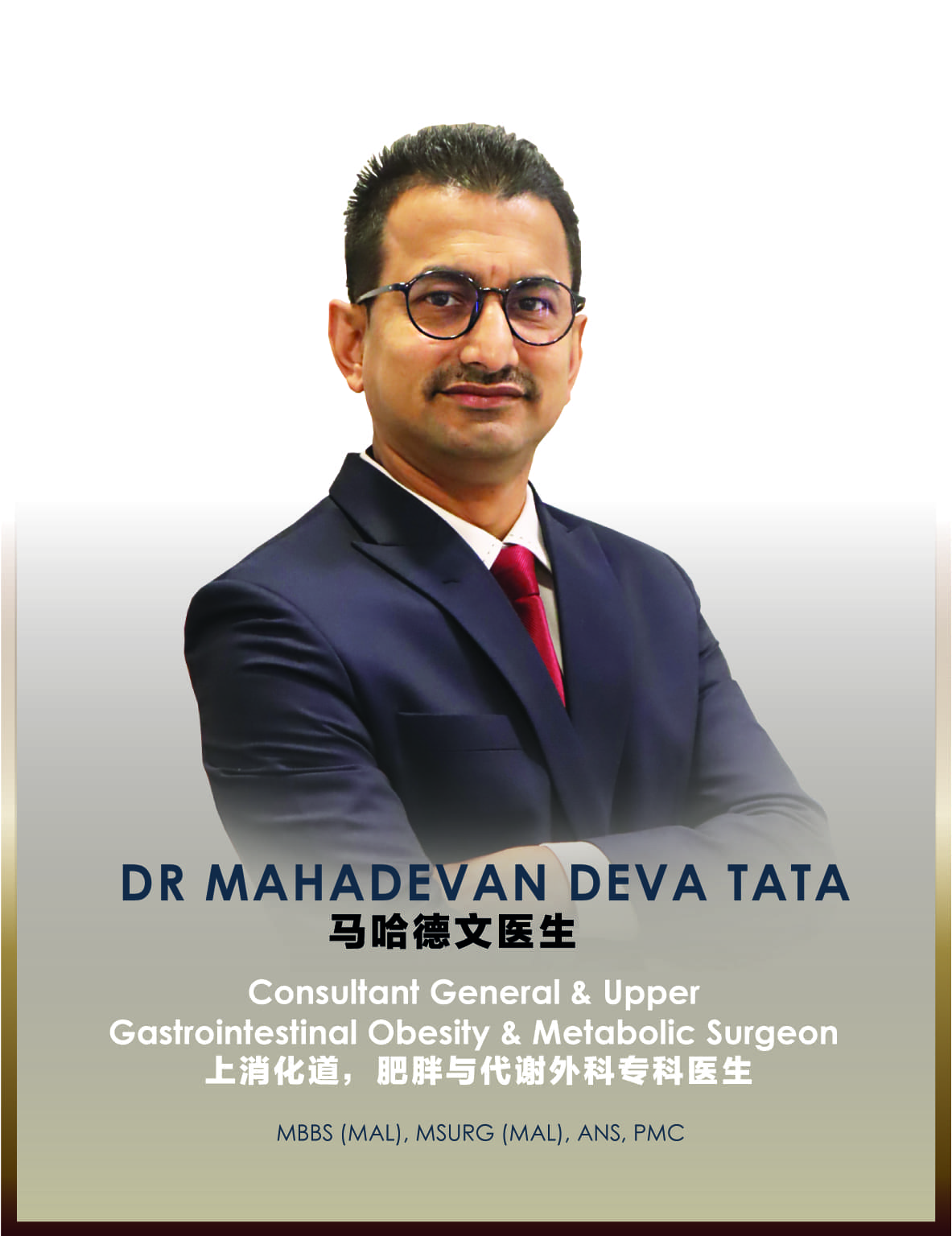Dr Mahadevan has been the Chairman of the Committee for Safe Surgery Saves Lives in Hospital Tuanku Ja’afar Seremban since early 2010. He has meticulously trained surgeons and staff to be ever-vigilant in the safety of their patients. His team-based approach to patient safety has directly reduced post-operative complications amongst his patients.
3,000 Major Surgeries – Dr Mahadevan has conducted surgeries involving breast, gallbladder, small bowel, large bowel, stomach, oesophagus and anterior abdominal wall defects since the year 2003. More than half of these have been minimally invasive procedures.
20,000 Patients – The number of patients treated by over 17 years of service by Dr Mahadevan.
National Specialist Registry – Dr Mahadevan is registered with the National Specialist Registry for both General Surgery and Upper Gastrointestinal Surgery.
Acting Head of Services of Upper GI Surgery, Ministry of Health (Malaysia) – Dr Mahadevan is an expert in stomach cancer, oesophagal cancer, surgeries related to the upper gastrointestinal tract, bariatric and metabolic surgery. He also regularly performs laparoscopic fundoplication, gastrectomy, oesophagectomy, laparoscopic common bile duct exploration and more. These make Dr Mahadevan a much sought-after surgeon in Malaysia.
MARK’S Quadrant – Invented by Dr Mahadevan for the purpose of detecting early gastric (stomach) cancer. He won the Young Investigator Award in ICGG 2011 Korea, and it is used in Open Access Endoscope services in Negeri Sembilan.
Film suture – 2009 was the year when Dr Mahadevan achieved international acclaim by representing Malaysia in Berlin, Germany after clinching the National Competition organized by B.Braun to find the most innovative ideas for a futuristic suture deployed in surgical practice. His idea of a “film suture” was selected for future R&D in innovative medical devices and applications.
TAPP Plus – Laparascopy has become an integral part of surgery and provides the patient with a safer alternative to traditional methods. Dr Mahadevan, as an expert in hernia repair – inguinal, ventral and hiatus hernia, innovated a new technique known as the TAPP Plus. This innovation is currently in its randomized study phase at Hospital Tuanku Ja’afar Seremban. Upon the successful outcome of the study, TAPP Plus will be accepted nationwide as a technique for inguinal hernia repair which specifically aims at reducing the operative time and significantly reduce postoperative pain. It will yet be another feather in Dr Mahadevan’s cap.
Open Access Endoscope Services – This was an initiative started by Dr Mahadevan in 2006 in the state of Negeri Sembilan, Malaysia, to detect upper GI cancers early. The effort was recognized both locally and internationally as a proactive measure undertaken by a caring surgeon who prioritizes patients’ welfare. Both the National Quality Assurance Award presented to Dr Mahadevan in 2011, and the prestigious Japanese Society of Gastroenterology (JSGE) – International Young Investigator for Gastroenterologist Award in 2012 are a clear testament to this fact.
Anti-Reflux TATA Stent (ART Stent / TATA Stent) – The stent duly named after the inventor, Dr Mahadevan, was a measure to combat the rise in cardioesophageal junction cancer, which is the fastest growing cancer in the world in terms of incidence rate. These cancers are, unfortunately, found in the late stage, providing very poor outcomes for the patient; many are overtaken by death soon after their diagnosis. With the advent of the TATA Stent, such patients can hope to have an ally in their battle against cancer. The TATA stent, the first specific stent of its kind for junctional cancer, is currently being studied for its efficacy at Hospital Tuanku Ja’afar Seremban.
University of Malaya, Malaysia – Established in 28 September 1905, this 115-year-old university is Dr Mahadevan’s alma mater. He completed both his undergraduate and Master’s degree in this university. He was the president of the student body – Medical Student Society (Medsoc) back in his days, and was voted Mr Personality in 2000.
Kawasaki Medical School Hospital, Okayama, Japan (Upper Gastrointestinal Surgery) – Dr Mahadevan underwent his sub-specialty training in advanced endoscopy, early cancer detection, and upper gastrointestinal surgery. He was trained by Prof. Ken Haruma & Prof. T. Kamada for early cancer endoscope, and Prof. Hirai for upper GI cancer surgery.
King Chulalongkorn Memorial Hospital, Bangkok, Thailand – It is both one of the largest hospitals in Thailand and a comprehensive research-intensive university which ranks first in Thaiiland. This is where Dr Mahadevan trained intensively for bariatric surgery, under the renown Prof. Suthep Udomsawaengsup. This is where he was trained to perform variety of procedures performed to achieve weight loss by reducing the size of the stomach with a gastric band, or through the removal of a portion of the stomach (sleeve gastrectomy), or by resecting and rerouting food to the small intestine via a small pouch (laparascopic gastric bypass surgery or RYGB), and simple endoscopic gastric balloon insertion which is done endoscopically without surgery.

